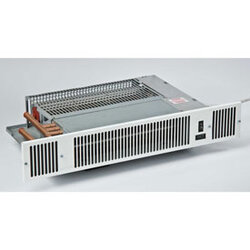I wish to relocate a kitchen to what is presently a tiny "bedroom" (just under 10x10') with baseboard heat on 2 outside walls (E&S), this will open the area to the living room which has plenty of baseboard and new insulation. To do so I will have to rip out paneling (allowing changes to wiring and revealing crummy insulation) and re-route the existing baseboard to accommodate cabinetry. There is a full basement under the "bedroom/kitchen" area and I'm not sure if I ought to be worried about pipes freezing on the outside east wall (sink will go there surrounded by cabinetry). My home is in NH and is in gardening zone 5; -10F, I've seen -20, but only once and there was plenty of snowpack. The heating system is an oil-fired boiler (new) that circulates coolant over 3 zones. Should I be concerned about frozen pipes to the sink or does the full basement reduce the likelihood of a freeze of domestic water?
Kitchen relocation and baseboard heat
- Thread starter Bobbin
- Start date
-
Active since 1995, Hearth.com is THE place on the internet for free information and advice about wood stoves, pellet stoves and other energy saving equipment.
We strive to provide opinions, articles, discussions and history related to Hearth Products and in a more general sense, energy issues.
We promote the EFFICIENT, RESPONSIBLE, CLEAN and SAFE use of all fuels, whether renewable or fossil.


